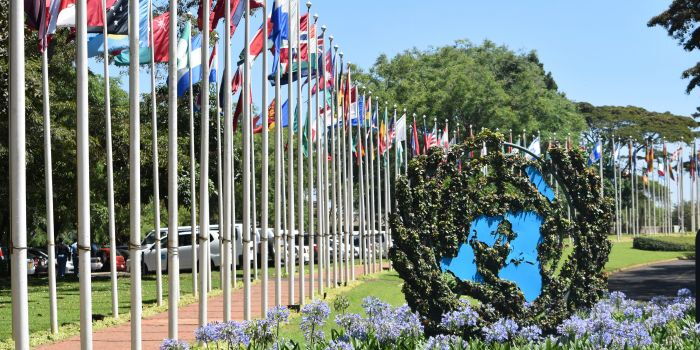- Details
- East Africa
- 353
A group of Tanzanian asylum seekers spent the entire day on Monday, November 17, at the United Nations High Commissioner for Refugees (UNHCR) office in Nairobi, seeking assistance for registration as refugees in Kenya.
The foreigners, who were mainly individuals seeking cover from potential arrests in Tanzania, expressed frustrations with the Kenyan government's reluctance to register them as refugees.
They claimed that despite an initial promise by the Kenyan government to formally acknowledge them as refugees, their efforts had been ignored, a situation which they said placed their lives in danger.
According to them, the explanations given by President William Ruto's administration for the failure to register them were unsatisfactory, forcing them to seek assistance from the UN offices.
The Tanzanians are among those who escaped political tensions in their country, witnessed during the recent election held on October 29, 2025, in which President Samia Suluhu emerged victorious.
While addressing the press yesterday, the foreigners claimed that they had received intimidation from authorities in Tanzania, warning them against speaking to the media.
"As you all know, here in Kenya, our country, Tanzania, is no longer a democratic nation. You witnessed what transpired there recently, so we have come here to seek asylum to save our lives," said one of the foreigners.
While Kenya primarily hosts refugees from most East African nations, including Uganda, Somalia, South Sudan, and the Democratic Republic of Congo, in recent weeks, there has been a surge in the number of Tanzanians seeking refuge in Kenya.
Most of these Tanzanian refugees are from the CHADEMA party, who are seeking refugee status in Kenya, citing persecution by President Suluhu's administration.
Despite expressing their disappointment over the failure of the Kenyan government to register them as refugees, Ruto's administration has yet to come out and address the matter.
This comes on the back of President Suluhu's directive on November 13, in which he ordered the review and withdrawal of charges against hundreds of youths arrested during recent post-election protests.
In her speech, Suluhu, who clinched victory after garnering nearly 98 per cent of the total votes, stated that many of the arrested youths did not know what they were doing and were merely following the crowd. by , Kenyans.co.ke






